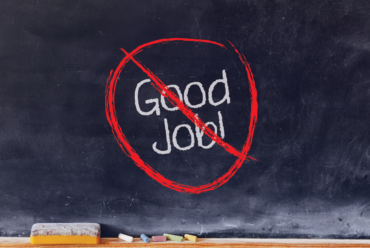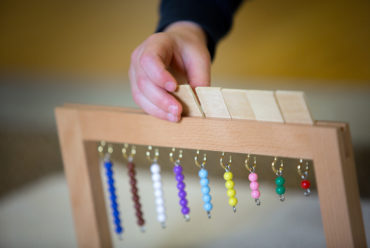The No Rescue Policy: Why it’s Time
By: Parenting Educator and Author Amy McCready
Forgotten lunches. Essays. Homework. Sports equipment. Oversleeping. Never fear! Mom or Dad are near!
No doubt, we parents feel a little super-hero-ish when we show up to rescue our kids in distress when they forget what they need or what they’re supposed to do. Whether we’re protecting them from a zero in a grade book, a reproachful eye from a coach, or the ruffled feathers of a commitment gone sideways, it feels good to be the hero for the people we love the most. What you may not realize is…ultimately, all that rescuing inadvertently paves the way to big-time entitlement issues. And that doesn’t feel very super, does it?
When kids know that no matter what – no matter when – you’ll drop everything and make THEIR responsibility YOUR responsibility – where is the incentive to grow up? To own responsibility? You may have guessed it – there is none.
Enter the No Rescue Policy. It’s a powerful tool that is simple to use but can be initially challenging for parents as we fight the urge to “fix everything” and for kids as they fight the change. Once the cycle of rescuing is broken, however, you will be thrilled with the responsibility your kids take on and really thrilled to no longer have to race to save the day!
Here’s how the No Rescue Policy works:
*A note of warning: The No Rescue Policy is for frequent forgetters – not for a once in a blue moon bout of forgetfulness. (After all, we all make mistakes!).
1. Give them fair warning
Let your kids know you see how they are growing up and becoming independent in so many ways. Express confidence that they are now old enough to manage some things for themselves and step up to some new “grown up” responsibilities. Outline what you expect from them and let them know that you will no longer be picking up the slack or rescuing them by rushing forgotten items to school, sports, or other practices/rehearsals.
2. Get your kids in on the act.
Your kids may not love this new policy and that’s all right. Be sure to make kids part of the solution by asking them to come up with ways to ensure that they don’t need rescuing in the first place! Ask, “What do you think we can do to make sure you have everything you need for school before you leave in the morning?” Make a running list of new strategies and suggestions and see what works! For some a checklist by the door works: others pack their school bags the night before. Figure out what works for your family and experiment with new ideas.
3. Start with a trial run.
It’s a good idea to do a few practice runs before setting the new No Rescue Policy in stone. Tweak the plan as needed. Be sure to announce when the No Rescue Policy will be in full effect. At that point – they’re on their own and can remember to do things for themselves, or expect to learn from the consequences.
4. Stick to it.
Here’s where the tough part starts. Your job is to do NOTHING. When your daughter leaves her lunch at home, or your son leaves his cleats, or the permission slip is on the table instead of in the backpack – your job is to do nothing – don’t rescue; don’t remind. Let them walk out the door without a word from you. It will be agony for you and tough for your kids as they experience the natural consequences of their forgetfulness. There might be pleading. Maybe crying. Maybe anger as they blame you for their forgetfulness. Take comfort in knowing that letting them fail is where the real learning happens. They may have been hungry at lunch or had to face the teacher about forgotten homework, but chances are, it won’t happen again.
5. Save the sermons.
Remember that life’s greatest lessons come from our mistakes. In the moment – avoid the “I told you so’s” and express empathy: “That must have been tough to tell your coach you didn’t have your practice gear. How did you work it out?” Then shift the conversation to solutions: “How can you tweak the routine so you don’t forget your equipment next time?”
Implementing the No Rescue Policy sometimes requires intestinal fortitude – but it’s well worth it!! Kids learn more from their own mistakes than from any lecture you can come offer. Keep in mind that your end game is to help your kids learn independence, self-sufficiency, pride in taking responsibility – and help them steer clear of the entitlement trap.
Good luck and happy parenting!
For more strategies on how to avoid the entitlement epidemic and raise kids who take personal responsibility, order a copy of Amy McCready’s bestselling book – now available in paperback: The “Me, Me, Me” Epidemic: A Step-by-Step Guide to Raising Capable, Grateful Kids in an Over-Entitled World










No Comments